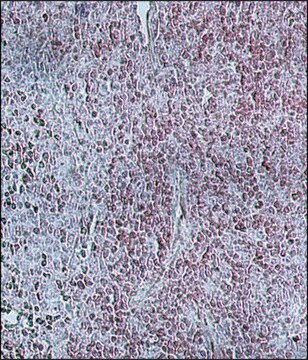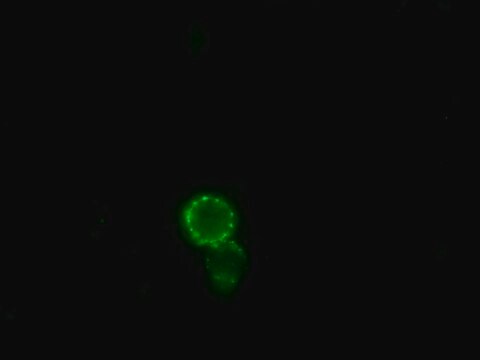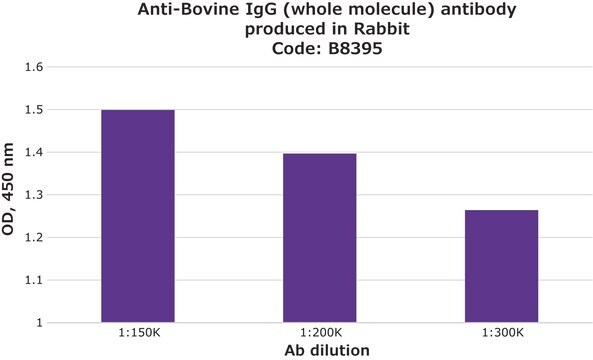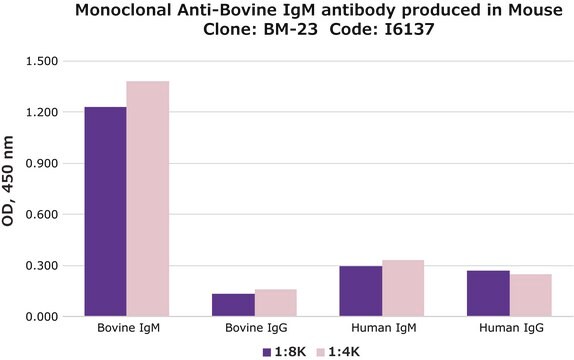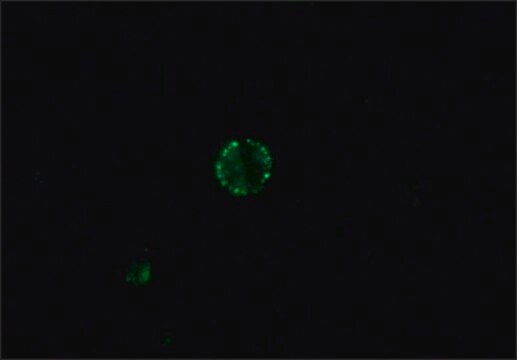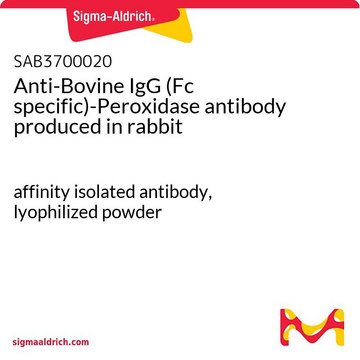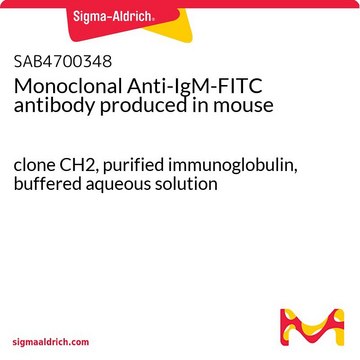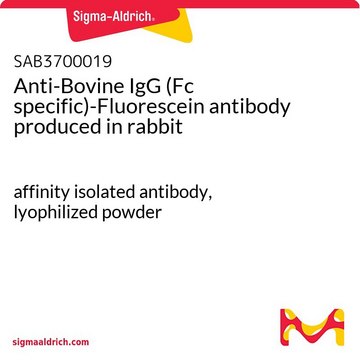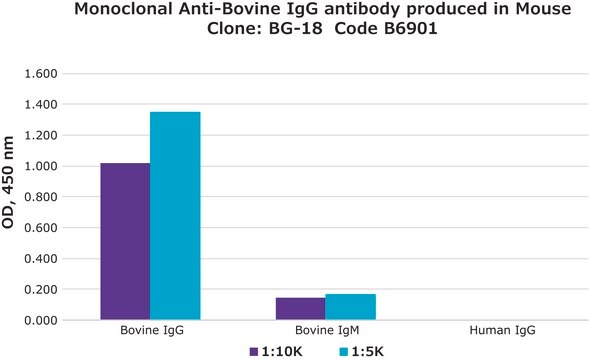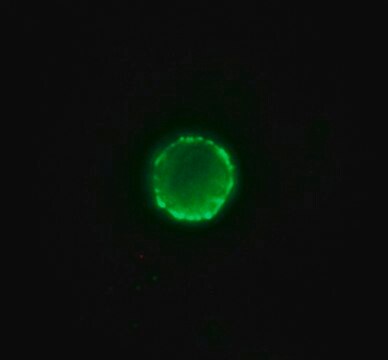F7887
Anti-Bovine IgG (whole molecule)–FITC antibody produced in rabbit
affinity isolated antibody, buffered aqueous solution
Synonym(s):
Rabbit Anti-Bovine IgG (whole molecule)–Fluorescein isothiocyanate
About This Item
Recommended Products
biological source
rabbit
Quality Level
conjugate
FITC conjugate
antibody form
affinity isolated antibody
antibody product type
secondary antibodies
clone
polyclonal
form
buffered aqueous solution
storage condition
protect from light
technique(s)
direct immunofluorescence: 1:300
immunohistochemistry: 1:300
storage temp.
−20°C
target post-translational modification
unmodified
Looking for similar products? Visit Product Comparison Guide
General description
Application
Biochem/physiol Actions
Physical form
Disclaimer
Not finding the right product?
Try our Product Selector Tool.
Storage Class Code
10 - Combustible liquids
WGK
nwg
Flash Point(F)
Not applicable
Flash Point(C)
Not applicable
Personal Protective Equipment
Choose from one of the most recent versions:
Already Own This Product?
Find documentation for the products that you have recently purchased in the Document Library.
Customers Also Viewed
Our team of scientists has experience in all areas of research including Life Science, Material Science, Chemical Synthesis, Chromatography, Analytical and many others.
Contact Technical Service